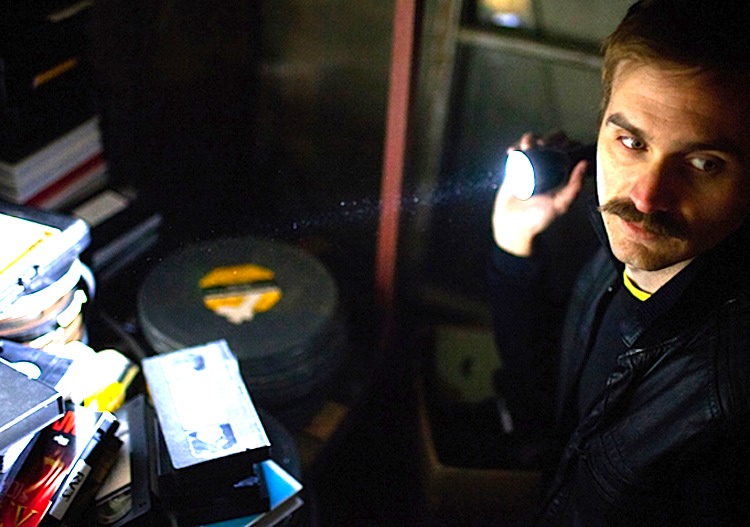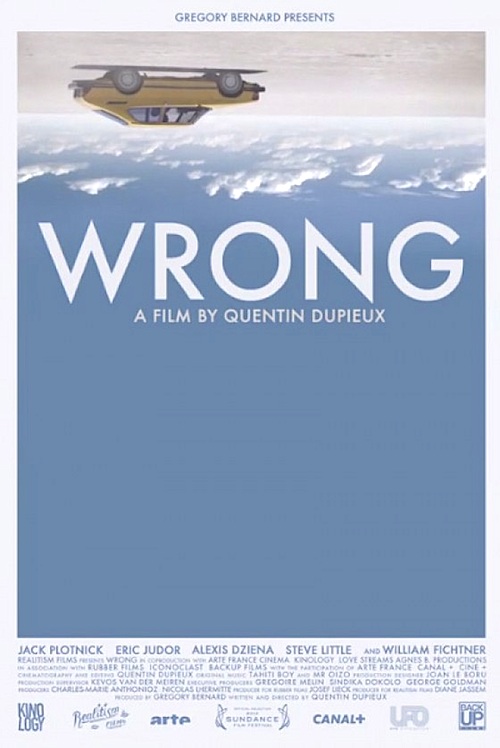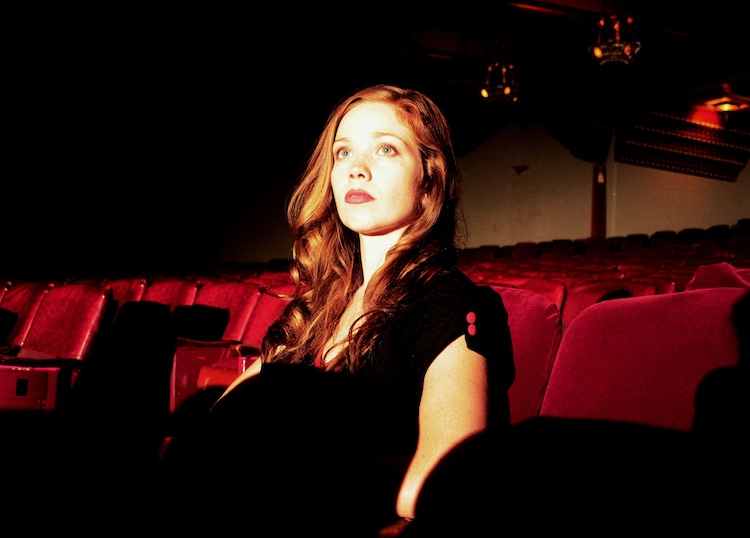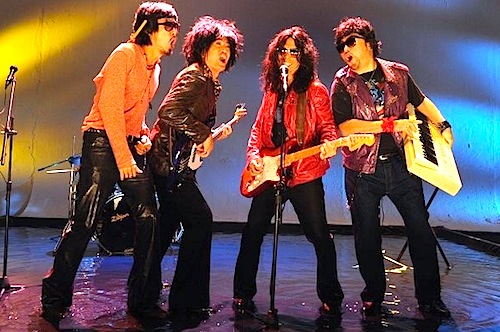By Joe Bendel. Pretty soon, VHS tapes will be nothing more than odd curios. A group of lowlife thugs is out to steal one that is particularly collectible. Supposedly, they will know it when they see it. If that sounds ominous, it should, because they are about to stumble across some deeply disturbing found videos in the anthology horror film V/H/S, which has generated monster viral buzz at the 2012 Sundance Film Festival.
Adam Wingard’s framing device characters are an ugly lot, who enjoy videotaping their violent crimes. Upon breaking into their target home, they find the owner long dead amid a pile of sketchy looking VHS tapes. Each one they screen tells a twisted tale.
David Bruckner’s opening Amateur Night follows a trio of unenlightened young men as they set out to bed drunk women and record their conquests through the geeky one’s spy camera. They somehow bring two women back to their hotel room, but one promptly passes out and the other is a bit twitchy. While we have a good idea where this is headed from the outset, Hannah Fierman’s penetrating eyes are spooky as all get out. As the mystery woman, she is simultaneously alluring and unnerving.
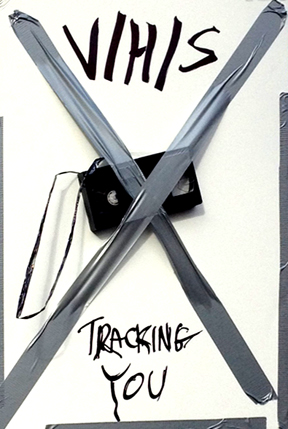 It is road trip time in Ti (House of the Devil) West’s Second Honeymoon, duly documented by a vacationing couple on their camcorder. Unfortunately, they are having trouble shaking this strange vagrant woman. While it might be the most traditional in its approach, West’s contribution arguably boasts the film’s single freakiest scene.
It is road trip time in Ti (House of the Devil) West’s Second Honeymoon, duly documented by a vacationing couple on their camcorder. Unfortunately, they are having trouble shaking this strange vagrant woman. While it might be the most traditional in its approach, West’s contribution arguably boasts the film’s single freakiest scene.
However, the best chapter is easily Glenn McQuaid’s Tuesday the 17th, which gives the horny teens in the woods subgenre a wicked twist. Whatever it is out there stalking them, it has a distorting power over the camera, greatly affecting our perceptions of events, which makes what goes down quite nerve-racking. Within the horror genre, it is light-years away from McQuaid’s strangely underappreciated I Sell the Dead.
Perhaps the weakest link is Joe “Mumblecore” Swanberg’s The Strange Thing That Happened to Emily When She Was Younger, which purports to be the recorded Skype chats between a woman with a haunted apartment and her long distance boyfriend—on a moldy old VHS tape. Really? Digital to analog, how did that work exactly? Maybe similar objections could be raised regarding Amateur Night’s spy glasses, but it is not so glaringly anachronistic. Still, there is definitely some weird stuff happening in the corner of the screen.
It is back to old fashioned camcorders for the YouTube tag-team Radio Silence’s 10/31/98, a story of carousing youth looking for a Halloween party and finding a house full of evil instead. The quartet clearly understands how to milk tension out of empty hallways and unsettling knick-knacks, before letting loose complete chaos.
Regardless of the hype surrounding audience members passing out and getting nauseous during a screening at Sundance, this is a legitimately scary movie, exponentially more frightening than the Blair Witch Project. Frankly, shaky-cams work better for horror than any other genre. It is always what we don’t see that scares us, so those what-the-heck-was-that moments are quite effective (whereas they are simply annoying in action films). However, the reliance on the hand-held found footage motif levels out the filmmakers’ differences of style, providing the film with a largely consistent look, aside from Swanberg’s internet ringer.
This is easily the scariest film in years. It can be bloody and it depicts some casual cruelty in the introduction that is not a lot of fun to watch, but once Bruckner’s story builds up some steam, V/H/S really buries its hooks into viewers. Recommended for bold genre fans not suffering from altitude sickness, it screens again tonight (Saturday, 1/28) during this year’s Sundance in Park City.
SUNDANCE GRADE: B
Posted on January 28th, 2012 at 3:19pm.
